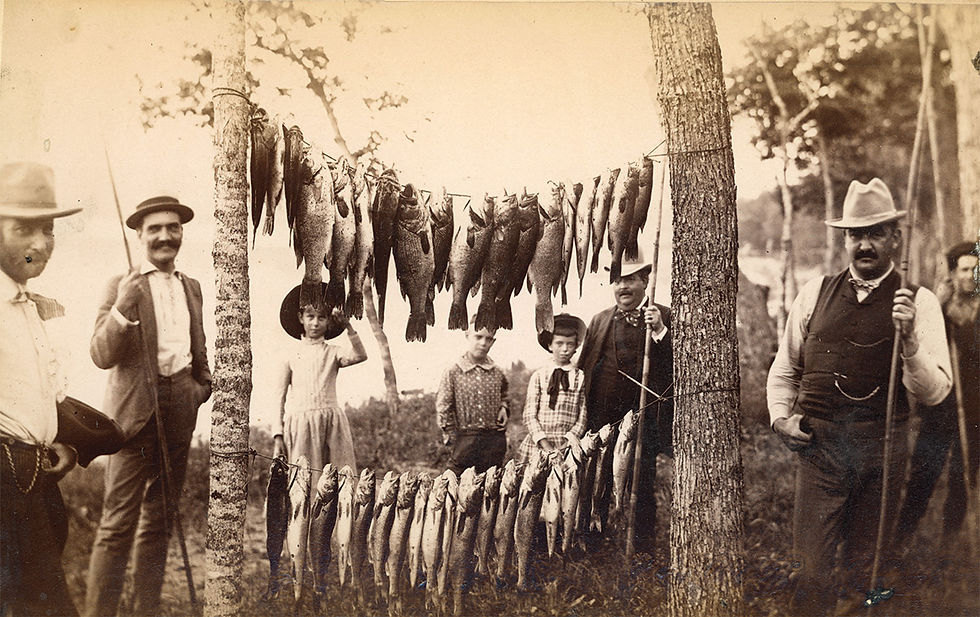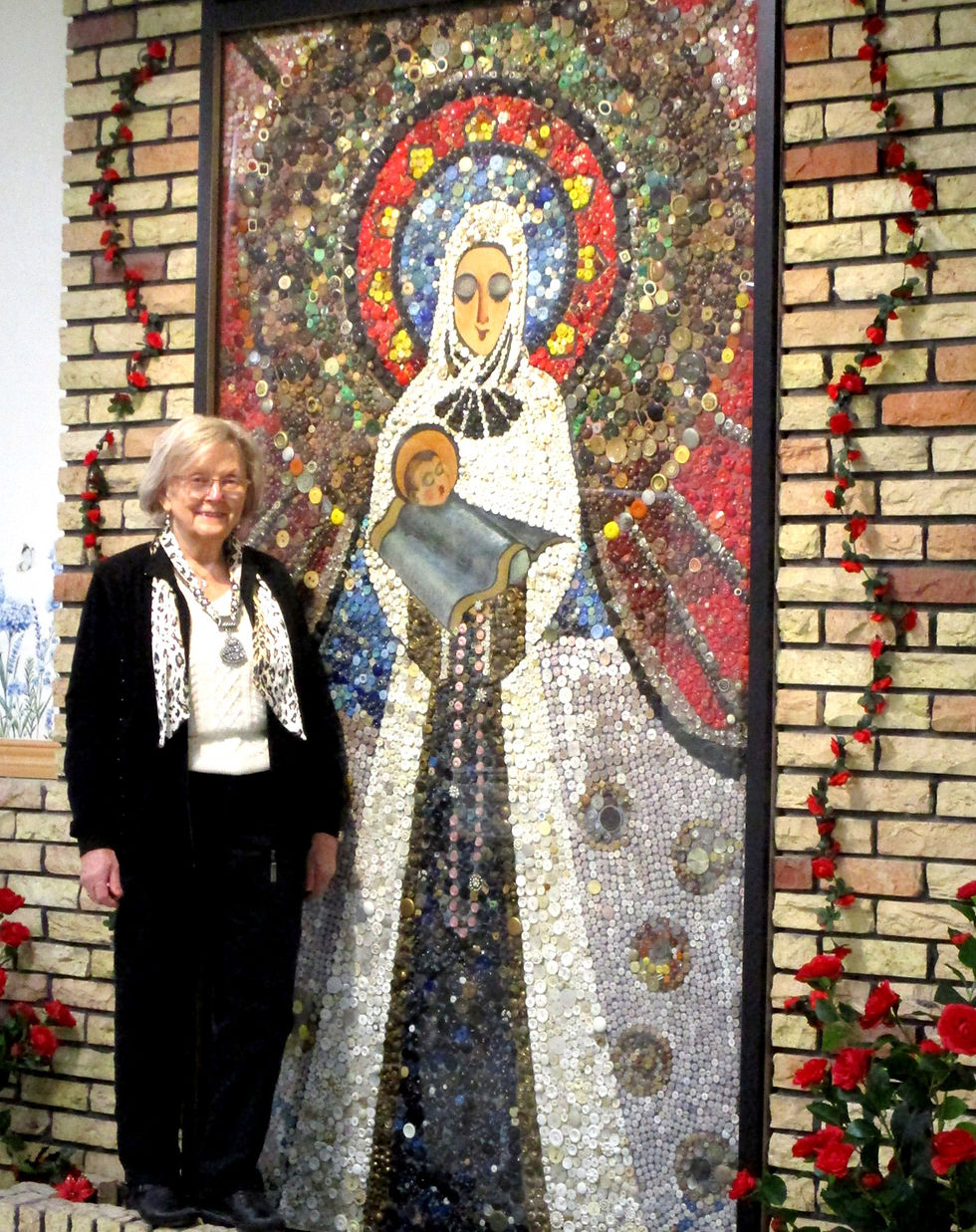Spunky columnist calls it a day
- Sr Perspective

- Oct 27, 2025
- 5 min read
Underwood woman brought gardening to life
By Carol Stender
At 89, Bev Johnson feels it’s time to retire.
The rural Underwood woman is leaving the gardening column she has penned every week for the past 24 years.
“I feel it’s time to retire while I still have a few working brain cells,” Johnson wrote in a letter to her readers.
She will continue her work as a master gardener, available at the West Otter Tail County Extension office every Wednesday, around 11 a.m., to answer questions and identify sick plants. She just has one request to those who bring plants for her to identify:
“If it is a weed (and you know it’s a weed), just kill it!” she said. “Do you really have to know if it’s Sally or Sam? I hate weeds.”
Her no nonsense approach coupled with her vast knowledge of plants and, yes, weeds, has been endearing to fans. And it’s what her editor liked as he read her first column.
She got her itch to write about gardening after reading a local paper’s column on the topic.
“About once a month, there would be a page on gardening,” she said. “But it was never about anything growing in our zone.”
So she wrote her own and brought it to the editor for his review.
“…I wrote an article on scat fungus on plum trees,” she said. “I said it looks like your cat took a dump on a branch.”
He liked her candor. The editor asked Johnson if he could publish it and if she would write more. She answered yes to both. Thus began her gardening column.
She admits that sometimes it’s been a challenge to find a topic, but she does some research on problems people are facing in gardening and writes her response. It takes her two hours to pen an article with added time to refine it.
Other gardeners asked her to write a book, Johnson said. And she did.
“Water the Snot Out Of It” is a compilation of her articles which features Bunkey as a main character and, in turn, named her cat Bunkey as well.
She kept all of her articles and turned them over to Joy Minion, her book editor, who poured over the pages and edited it all for print. The book was completed in a year and, in 2016, sales began for her work. Johnson has sold 600 books.
It all stems from her love of plants. Her fervor for gardening is almost hereditary. Her grandmother had a large garden as did her mother. Through their tutelage, she learned how to plant, what to plant and where and how to make it all thrive.
She grew up in Underwood. Her father operated a road construction business and her mom maintained the home.
“At that time, you didn’t get fresh vegetables or fruit,” Johnson said. “Everything was canned. (Grandmother) was the same way. You lived with what was in the garden. There were apples, plums, raspberries and strawberries, too.”
She met her husband, Arlen, in high school. Both were 16. She was from Underwood and he hailed from Fergus Falls. After their graduation, the two got married and moved several times, but no matter where they hung their hats, Johnson maintained a garden.
They started life in Fergus Falls then moved to Underwood. When Arlen got a job in Wisconsin, they moved to Red Wing and later, St. Cloud. His company offered him another position in Minneapolis, but the family didn’t want to move to The Cities. Instead, they chose to live at the family cabin on Little Pleasant Lake.
The Johnsons converted the cabin to a three-bedroom plus office year-round home. Bev drew the design and Arlen and the couple’s four children - Crista, Kala, Kelly and Melissa worked on the home.
“We built this house ourselves - the six of us,” she said. “The only thing we hired out for was the foundation and the chimney.”
The property had plenty of space for a garden. What she harvested was preserved, either by canning or freezing, she said.
Her husband was not a gardener, but he was proud of her skills and often took the vegetables not used by the family and gave it to neighbors.
When the family moved to Underwood, Arlen became self-employed with a heating/cooling business and Johnson maintained the home and large garden while raising four children with her husband. As the kids grew up and sought their own careers, Johnson took on a new job as a home health aid for 16 years.
“Almost everyone I was taking care of was on social security,” she said. “I thought I should have my own income.”
It prompted Johnson to go to college. She received her nursing degree in 1983 and worked two years as a licensed practical nurse at Lake Region Hospital and 10 years as a registered nurse at the state hospital.
“I was 50 years old when I went back to school,” she said.
Her interest in learning prompted her to take the master gardener course in 1999.
“I wanted to learn more about gardening,” she said. “You never reach a point where you learn it all. There will always be a question that stumps me.”
Johnson has gained a wealth of knowledge and knows the resources to tap for those difficult gardening questions.
“A lot of people will say, ‘I killed my house plants,’ and I will ask them how do you take care of them?” Johnson said. “They say they water them on a schedule. I will ask if they check to see if they need to be watered because often they are over watering the plants.”
Tomato plants looking terrible? If the plants have been planted where tomatoes were planted last year, that is the problem, she said.
“You can’t do that,” Johnson said. “That’s where the bacteria and viruses in the soil can get it and don’t plant any on that family for three years.
Her garden rows are the width of newspaper because she puts an actual newspaper between the rows she plants. She puts about four to six papers down and covers it with leaves. Then she doesn’t have to weed between the rows and weeds just within the row of plants.
“I hate weeds,” she said. “There are people who do and they keep tilling it but that destroys the structure of the soil.”
She also doesn’t cage her tomatoes. Letting the tomato plants sprawl which seems to ripen all the tomatoes instead of some staying green.
If she spots dewy mildew, Johnson mixes a few drops of liquid soap in a cup of milk and a gallon of water. It won’t cure the problem, but it will stop the mildew from spreading, she said.
Johnson doesn’t have a vegetable garden at this time and age has nothing to do with it. Two years ago 40 geese loved her garden as much as she did.
“They took everything,” Johnson said of the geese. “That’s why I have wildflowers.”
She does grow some produce in four container boxes. Tomato, celery, two kinds of muskmelon and cucumbers grow in the boxes.
“At last the geese can’t get into it,” she said.
About three-fourths of her flowerbeds are planted in perennials and her annuals she lets go to seed with the seeds falling to the ground.
‘It’s lazy gardening,” she said.
She gets around to her flower gardens, vegetable containers and greenhouse on her golf cart. And she has no plans to stop.
“I will still garden,” Johnson said. “I just won’t be writing about it. I will still garden until I fall dead one day. As long as I can do it, I will… and when I can’t, I will hire someone to do it. I will stay right here.”




Comments